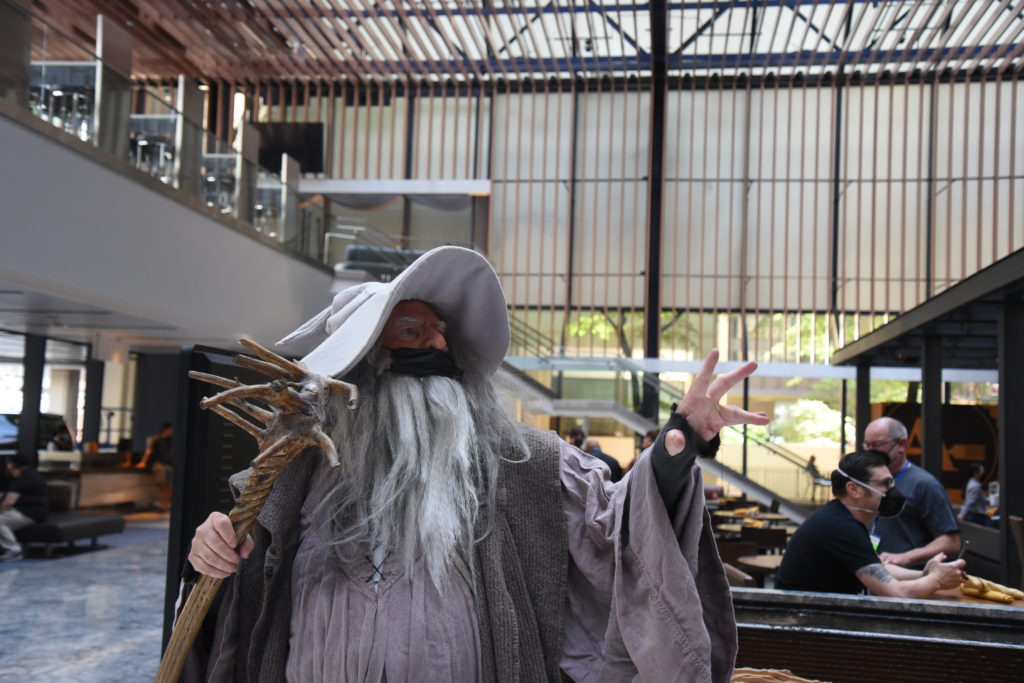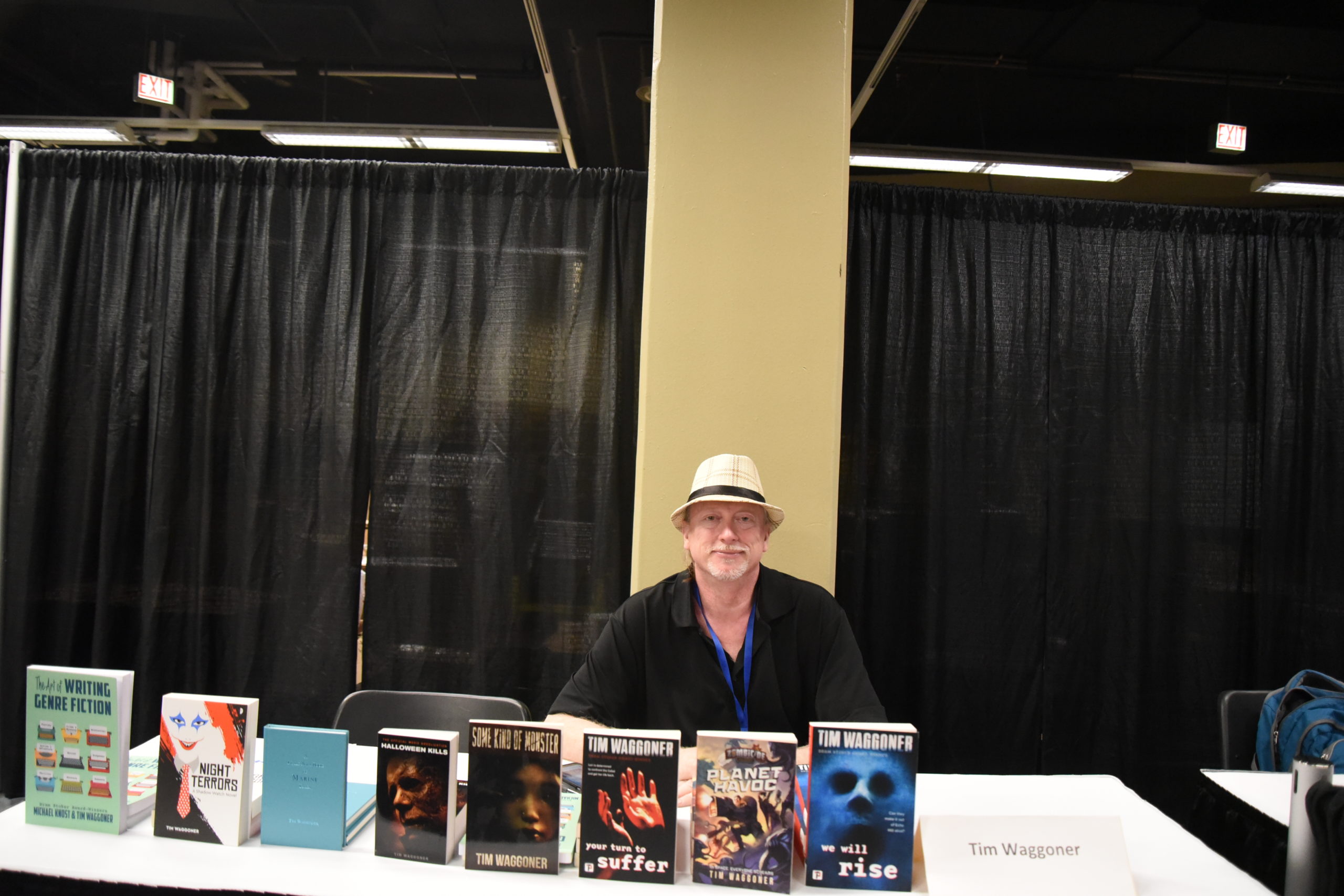Students at Sinclair are regularly taught by some of the most prestigious professionals in their fields, a fact easily forgotten in the hustle and bustle common in a regular semester. At the 80th World Science Fiction and Fantasy Convention (Worldcon) held earlier this month, one Sinclair professor brought the decades of knowledge he regularly shares with students to attendees from around the world.
Three-time Bram Stoker Award Winner Professor Tim Waggoner joined other speculative fiction luminaries at the Hyatt Regency in Chicago. There he participated in several discussion panels, offering creative writing advice to prospective authors, shared his industry experiences, and his take on the direction of the horror genre.
“My favorite panel was “Finding Optimism and Comfort in Horror” because most people would find it counterintuitive, that the kinds of situations depicted in the genre can bring people comfort,” said Waggoner. “There has been a real resurgence of interest in horror over the last few years. More publishers are establishing horror lines and horror has once again been given its own section at Barnes and Noble, where before it was typically lumped with general fiction. It really speaks to the strength of the genre right now.”
As part of his participation at Worldcon, Waggoner was asked to discuss the growth of Midwestern Gothic and its development over the years. The continued evolution of the region’s unique brand of horror coincides with a general surge of interest in the genre. That includes a bevy of major releases over the past few years, including Get Out and A Quiet Place.
“A lot of Midwest horror is written about smaller towns, which works well because you have a pocket of civilization surrounded by wilderness where people are alone and there are fewer places to hide,” said Waggoner. “There’s also this idea of small-town secrets being exposed, which does not have to be dark but lends itself well to horror stories. The flipside of the salt of the earth image commonly held of small towns is the darkness and that makes it rife for social commentary as well.”
Waggoner recommends aspiring writers and authors connect to others at conventions. It is, he says, a great way of finding a community and promoting your work.

“You can reach out through the internet, but in person it is easier to ask questions, get answers, and make connections with people in the industry. Editors and agents are human just like everybody else and are more likely to want to collaborate with you if they have a sense of who you are beyond words in an email,” said Waggoner.
Throughout the five days of the event, Waggoner’s schedule was jam packed full of panels. He would be joined by other industry professionals such as Maria Schrater and Micaiah Johnson.
“It’s best to start at smaller cons that are more local,” said Waggoner. “There is more than just the information you get. You cannot make those connections with real people in the real world unless you go and meet them. There is this powerful feeling you get when you’re there as a writer in a professional space. It can be great for one’s self-confidence.”
Waggoner is the author of We Will Rise, Writing in the Dark, and Supernatural – Children of Anubis, among many other works. Students and fans of creative writing can learn more by visiting his blog.
Ismael Mujahid
Reporter

